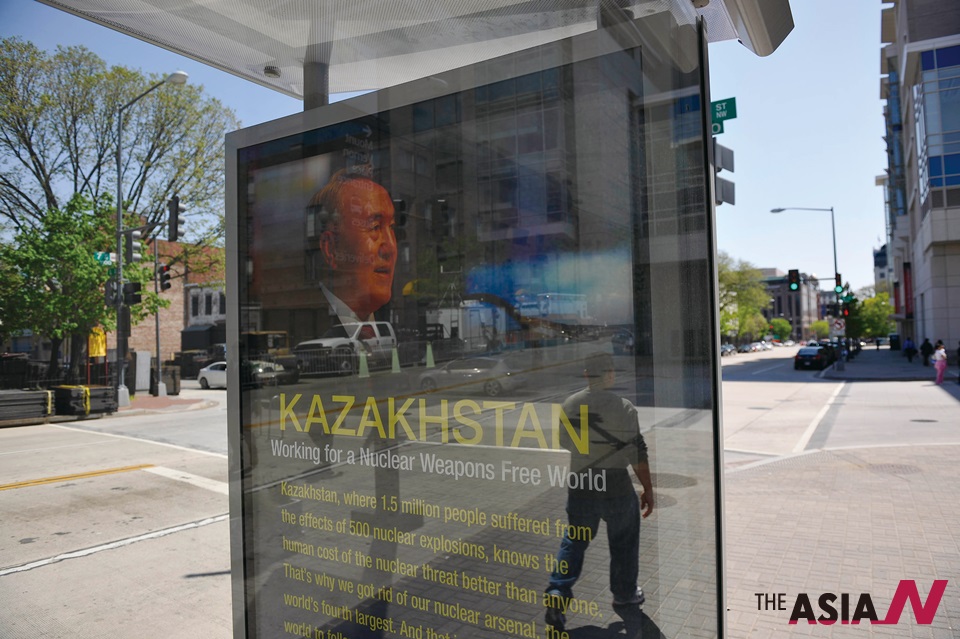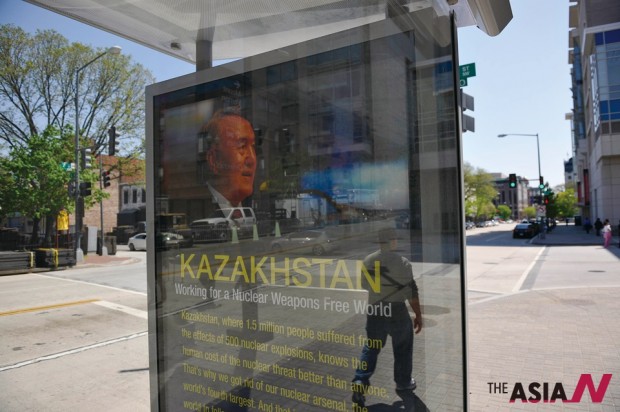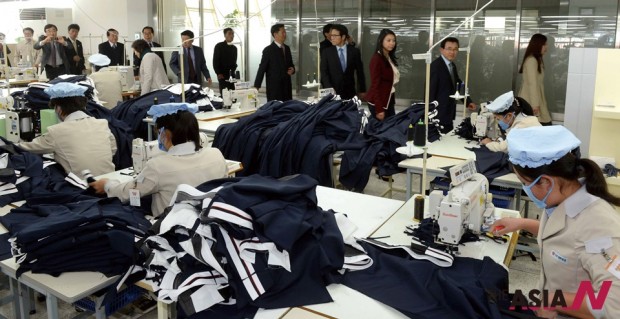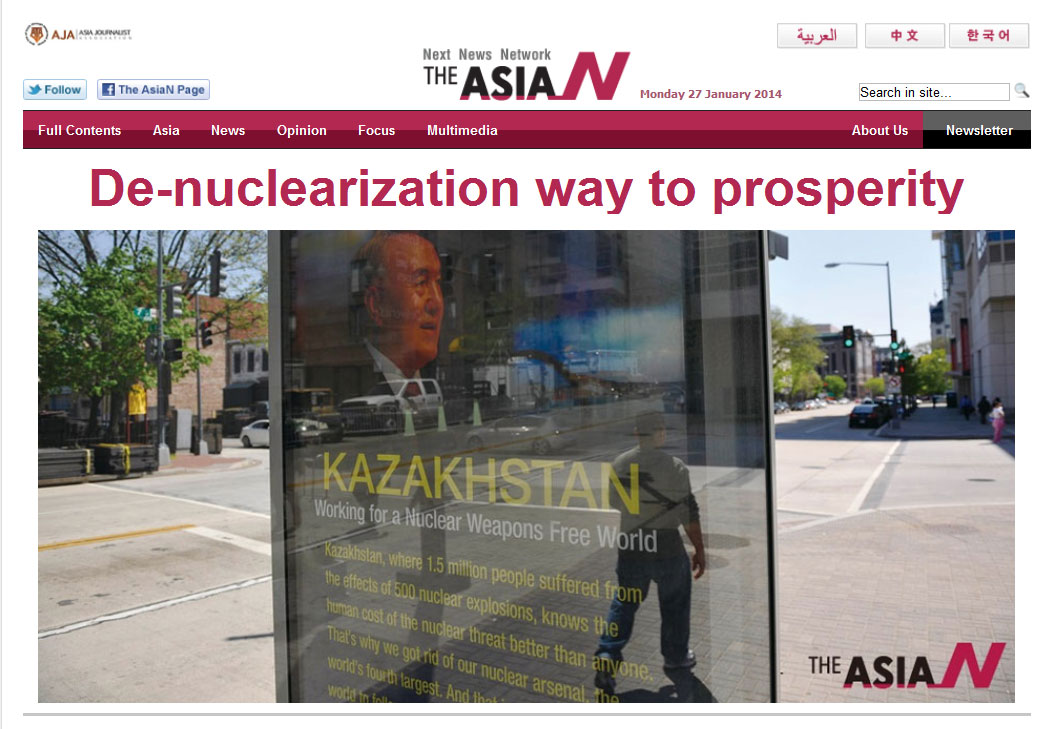
De-nuclearization way to prosperity

Among other negative effects, World War II left the problem of a divided Korea. Despite the fact that it was completely divided into the North and South several years after the end of World War II, the current state of their relations are still a consequence.
The situation on the peninsula was even more complicated because the world was divided into two different political systems. Supported by the whole of the former socialist system, North Korea was trying to strengthen its position by the support of such countries as the USSR and China. But the situation has changed dramatically with the collapse of the socialist system. The New World Order forces the two countries on the peninsula to find a mutually acceptable relationship. Unfortunately, the situation looks as if North Korea still has not recognized the new reality and is not ready to adequately respond to it.
Meanwhile, South Korea’s success, especially economic achievements, and its standing in the world is becoming more attractive to many Asian countries. This is evident even among the population of north of the peninsula. However, the former political preference, from which the government of North Korea cannot reject, does not allow for integration not only with South Korea, but also with the entire world. Because of this, the situation on the peninsula sometimes warms up and then becomes cold again. Therefore, this issue remains on the agenda of the international community and its importance has increased since the announcement of North Korea’s nuclear ambitions, which further strained the world.
Given the many years of experience of developing countries in Central Asia as an example of a reasonable approach to the importance of peaceful development, we can point to Kazakhstan, which voluntarily and quickly got rid of its huge nuclear weapons inherited after the collapse of the Soviet Union. As a neutral third world country with great economic potential, Kazakhstan has become one of the world’s attractive countries.
To achieve this, the Kazakh government had established close partnerships with major nuclear powers of the time – the U.S. and Russia. Simultaneously, Ukraine, Belarus and Kazakhstan signed the Treaty on the Elimination of all huge nuclear ammunition. Before that, Kazakhstan unilaterally stopped the functioning of the Semipalatinsk nuclear test site and imposed a ban on nuclear testing.
Elimination of nuclear ammunition took years, after which the country has become much more attractive for foreign investment, as the entire world witnessed the practical steps of the country towards an open relationship with the world. Thanks to investments, Kazakhstan conducted serious reforms in all spheres and gradually developed into one of the most dynamically developing and peaceful nations in the world. And it is no coincidence that the negotiations of leading nuclear countries with Iran to reach an agreement on the exclusively peaceful development of the Iranian nuclear program are held in Kazakhstan.
The Kazakh president in his address on this issue directly urged the Iranian side to follow the path of Kazakhstan. This would give the country lifting of economic sanctions and would attract investments, he says. After the de-nuclearization, Kazakhstan itself has been developing steadily and aims at becoming one of the 30 most developed countries of the world within 30 years. Thanks to an ingenious policy of the country and the proper use of natural resources, the country rapidly develops its economy and soon will be able to provide its people with all necessary.
North Korea is in a similar situation as Iran and the authorities of this country need to understand all the benefits of peaceful development without nuclear weapons.
The Central Asian countries have different levels of development both politically and economically. However, they all understand the need for peaceful and stable development in order for people in their countries to live better.
Economic integration exists at different levels: one of these countries is a member of the Shanghai Cooperation Organisation and one is a member of the Customs Union, the WTO and others. However, all of them understand that without integration within the region, development will not reach its potential. Currently, despite the internal contradictions and political differences, the countries seek economic cooperation.

Kazakhstan urges Iran to follow suit
There are many examples in the world and in the situation on the Korean peninsula, where one nation lives, having common historical roots, the same culture and language, but is artificially separated on the basis of a long-standing conflict, causing an acute need for a speedy resolution. And which way depends on the good will of the parties. And there is a need to make their best efforts on rapprochement.
Some time ago, the government of North Korea, following the sharp deterioration of the situation on the border with South Korea, made a gesture of goodwill and withdrew its forces from alertness. This caused some hopes for further steps. However, their recent steps to punish its citizens just for watching South Korean television programs has caused a real shock.
This was an indication that the international community must constantly attend to the situation in the country and provide moral influence on the regime in North Korea. Only in this way it is possible to influence the position of the country’s leadership. To address the problem of division of the peninsula, it should be treated more in terms of benefits to the people, not politics. There is hope that the current leadership of North Korea will ripen for serious negotiations and begin to think about unification of the country, which sooner or later must occur on the Korean peninsula. Such a move would be a most welcome step of a single nation on the Korean Peninsula, the implementation of which would lead to greater economic growth of the now divided one nation of two countries.




